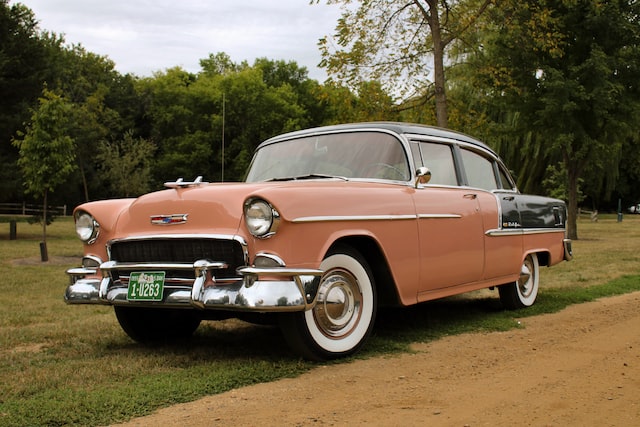Parallel parking is one of the most difficult things for new drivers to master. Parallel parking is challenging at first because it necessitates a strict approach to get the angles into the parking spot just right.
Your parallel parking skills will be tested during your driver’s license test in most states in the United States. Failure on the parallel parking test is frequently equated to an instant fail on the driving test, and it is regarded as one of the most difficult sections of the exam.
Given the fact that most states still test parallel parking and how frequently you will do it once you get your driver’s license, learning the 10 simple steps outlined in this article should be a no-brainer.
If you’re planning to get your driver’s license, let’s get started with our free DMV practice test pack on our website.
What is parallel parking?
Parking parallels to the road, in line with other parked vehicles, and facing the same direction as traffic on that side of the road is known as parallel parking. To perform this, pull up parallel to the vehicle in front of the parking place and back up slowly into it.
Steps to Parallel Parking
Many drivers go to great efforts to avoid parallel parking. While how to parallel park can be challenging and requires some practice, there is no need to be concerned about this driving ability. Depending on where you reside, you may be asked to demonstrate your ability to parallel park during your driver’s license test. Before your driving test or when you’re obliged to parallel park on a crowded roadway, practice your skills. To imitate the normal dimensions of this type of parking area, place two plastic cones or other objects about fifteen feet apart. When practicing parallel parking for the first time, use the steps below as a reference.

Position your car
Slowly turn your car in the direction of the car parked in front of the empty space. Your car should be about 2-3 feet away from the parked car.
Check your mirrors
Look at your rear-view mirror, as well as your left and right side mirrors, for other vehicles. Shift your car into reverse once you’re sure there are no other vehicles in your blind spot.
Start backing up
Begin slowly reversing your vehicle along the parked car’s side. Start turning your steering wheel right.
Straighten the steering wheel
Slowly straighten your steering wheel as you back into the empty parallel parking slot, continuing to proceed back towards the parked automobile at the other end of the parking area. Continuously examine all mirrors, windows, and front windshield as you maneuver your vehicle to ensure you are not in danger of hitting one of the automobiles bordering the parallel parking space.
Begin turning your steering wheel to the left
Begin turning your steering wheel to the left once the front of your car has passed the back bumper of the vehicle in the parking area in front of you.
Check how close you are
Look into your rearview mirror as you continue to inch backward in reverse and begin to straighten your steering wheel to observe how close your vehicle is to the car in the parallel parking spot behind you.
Adjust your position
Once your vehicle is straight and as close to the curb as feasible, you may need to move forward to position your vehicle such that there is equal room in front and behind it.
Don’t forget to pay before you leave
A parking meter is assigned to many parallel parking places. This is especially true in metropolitan areas. After parallel parking, your car, make sure you remember to feed coins into the parking meter.
Put the car into reverse
To get out of a parallel parking spot, go into reverse and back towards the car in front of you. Back up as near as you can without putting yourself in danger of hitting the other car.
Turn your steering wheel to the left
Next, change your car into forwarding gear by turning your steering wheel to the left. Make sure there’s no traffic in the lane you’re going to enter. Slowly drive out of the parallel park, making sure you’re not too close to the back bumper of the vehicle in front of you.
You will save time and money by not having to look for a regular parking space if you are confident in your ability to parallel parking with our parallel parking tips. You should be able to get the idea of parallel parking after a few tries and impress your driving instructor.

UT Utah License Renewal: A 2025 Comprehensive Guide
Discover the ultimate guide to Utah license renewal! This comprehensive guide delves into the intricacies of renewing your driver's license in Utah,...
February 13, 2023

South Carolina S.C. Driver's License Renewal
The South Carolina S.C. driver's license renewal process is designed to be comprehensive, taking into consideration eligibility requirements, renewal methods,...
February 13, 2023

Pennsylvania PA DMV License Renewal: A 2025 Full Guide
The Pennsylvania PA DMV license renewal process is designed to be comprehensive, taking into consideration eligibility requirements, renewal methods,...
February 10, 2023
